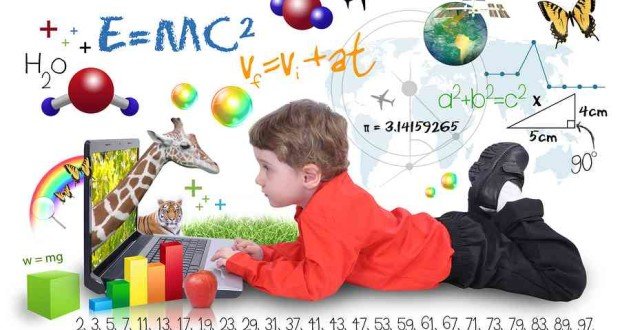Learning as a Process of Educational Development and its Theories
Life is a constant learning. At all times we are learning and applying what we have learned before. Imagine if we could not learn. Every day we would have to repeat the same sequences to do the simplest thing.
Daily learn and update learning. Since our birth we learn. The mere fact of facing the world makes us change the behaviors we had and use others to get better results. Our learning is perfected with practice. It is therefore a continuous process .
We learn not only intellectual content, we learn, above all behaviors of all kinds, feelings, attitudes. We learn to be, to do, to feel and act. We also improve the learning already acquired, giving more detail, more precision, better adaptation to the goals What are we looking for.
Learning has as an ally memory. Not because you have to retain a series of intellectual contents, without knowing how to reason them, but because the logical consequence of learning is to remember what you have learned. We must learn something about memory and remember what we have learned about it. learning. That is what we will do in this chapter.

What is Learning?
The experience of living immediately brings us an exposure to the amount of stimuli from the environment, from the environment. In the world we react in different ways. The first ones are given by our human condition. We seek to satisfy the basic needs and the instinct leads to that However, the world is a place of complexities. With so many stimuli we have to start choosing. We are differentiating things, individuals, situations. We are learning in that exposure to life.
We can define learning as a process by which skills, knowledge, attitudes, feelings and emotions are incorporated into our behavioral repertoire and those already acquired are perfected or modified, within the general purpose of preserving life, meeting needs and eventually achieving a successful survival.
The learning serves in this sense, to acquire behaviors and to acquire behavioral motivations. Both types of learning occur in the human being but have different scope.
In the first case, the learning of behavior involves the acquisition or modification of behaviors in specific situations. It implies that each learned behavior is unique and specific. For example, we learn to which side is screwed and to which side a screw is unscrewed determined.
The acquisition of behavioral motivations, on the other hand, is based on generalization. We understand factors that move the individual to act or direct our behavior in situations, but in a more general way. We can learn, for example. to screw any screw when doing it the first time. In a certain way, we learn to learn.
Modalities of Learning
The various theories that explain learning also assume that there are different modalities. Before knowing the theories that will give us an expansion of the perspectives on the subject, let's see the practical modalities in learning.
Practical learning modalities.
Content learning: in practice we learn intellectual contents, information, general notions, names through the use of memory and association.
Learning activities:_ we learn to do by doing. The practice of behavioral sequences is repeated. In this way we learn different tasks, develop skills and aptitudes and exercise in sequences of expressive behaviors._
Learning of affection: affectivity is also learned through the repetition of successful patterns of affective behavior. In this way we set our motivation, we learn to demonstrate our feelings and express our emotions in a social context.
Theories of Learning
Dogs, cats and mice have helped the human being to learn. Laboratory experimentation in the field of learning has led to interesting results.
The theories of learning reflect ways of conceiving how the process occurs. But they often express a modality that does not necessarily contradict other alternatives presented by different theories. In this way, although the theories of conditioning, for example, are diverse conceptions of the same problem, do not contradict, but explain different ways of obtaining the same universal phenomenon of learning.
Next, I present an explanatory video, one of the most influential man in psychology, Jean Piaget, who develops his theory of learning or better known as the theory of cognitive development, which has as main argument the development of intelligence human from the cognitive development from birth to maturity, going through each of the stages of us human beings. I invite you to watch this interesting video by JEAN PIAGET.
If this publication was of your interest and you found it interesting, I invite you to comment here below and leave your vote, see you soon friends.
Bibliography :
- https://en.wikipedia.org/wiki/Learning_theory_(education)
- https://www.learning-theories.com/
- http://www.psychologydiscussion.net/learning/learning-meaning-nature-types-and-theories-of-learning/652
- https://warwick.ac.uk/fac/soc/cte/students-partners/academictechnology/learningtheories/
- https://courses.lumenlearning.com/educationalpsychology/chapter/major-theories-and-models-of-learning/
excellent content, especially the video that explains Jean Piaget, for me the best is his theory. good content for @steemstem
Hello, thank you for your good comment greetings